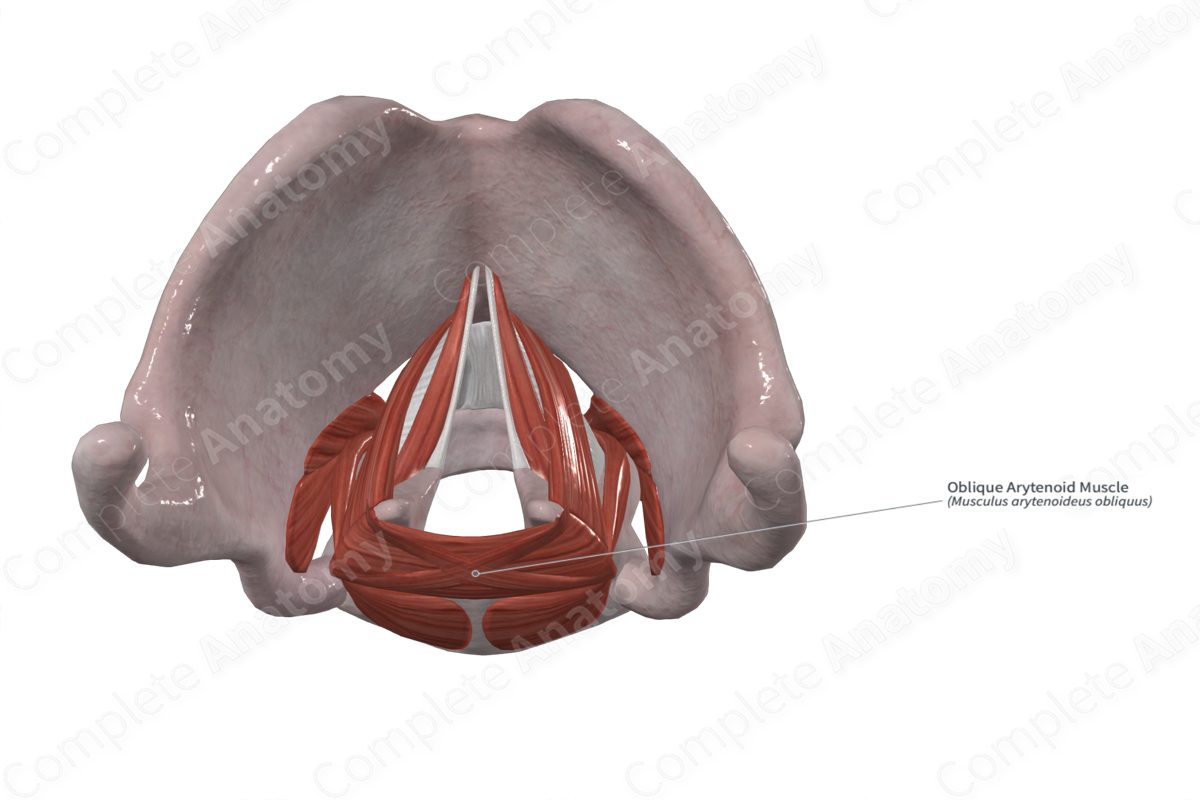
Quick Facts
Origin: Muscular process of arytenoid cartilage.
Insertion: Apex of contralateral arytenoid cartilage and aryepiglottic fold.
Action: Adducts vocal folds.
Innervation: Recurrent laryngeal nerve (CN X).
Arterial Supply: Superior and inferior thyroid arteries.
Related parts of the anatomy
Origin
The fibers of the oblique arytenoid muscle arise from the muscular process of the arytenoid cartilage.
Insertion
The fibers of the oblique arytenoid muscle cross over to the contralateral arytenoid cartilage and insert into its apex. A portion of the fibers extend laterally past the apex of the arytenoid cartilage into the aryepiglottic fold. These fibers form the aryepiglottic part of the oblique arytenoid muscle.
Key Features & Anatomical Relations
The oblique arytenoid muscle lies superficial to the transverse arytenoid muscle. The oblique arytenoid adducts the vocal fold and the aryepiglottic part brings the epiglottis towards the arytenoid cartilages.
Actions
Overall, the oblique arytenoid muscle adducts the vocal folds and closes the laryngeal inlet. Adduction of the vocal folds causes shortening and relaxation of the vocal folds (Standring, 2016).
References
Standring, S. (2016) Gray's Anatomy: The Anatomical Basis of Clinical Practice. Gray's Anatomy Series 41st edn.: Elsevier Limited.




